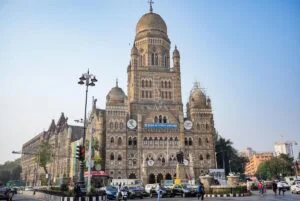
Why in News?
- The recent Supreme Court judgment on the Chandigarh mayoral election has brought to light the persistent challenges surrounding municipal elections in India.
- Unlike national and state-level elections, municipal elections often face hurdles in timely execution and smooth transitions of power.
- This issue underscores the need for comprehensive reforms to uphold the democratic principles at the grassroots level.
Constitutional and Legal Framework:
- The Constitution of India establishes a framework for conducting municipal elections, entrusting this responsibility primarily to the State Election Commissions (SECs).
- These commissions, operating at the state level, are tasked with supervising and organizing municipal elections across the country.
- Their duties include overseeing voter registration, candidate nominations, polling processes, and the declaration of election results.
- One significant aspect of municipal elections is the limited interference of courts, as stipulated by the 74th Constitutional Amendment.
- This amendment, enacted in 1992, aimed to strengthen local self-governance by granting constitutional status to urban local bodies.
- It restricts judicial intervention in municipal electoral matters, thereby affirming the autonomy and authority of SECs in conducting these elections.
Status of Municipal Elections:
- Despite constitutional provisions, the ground reality paints a grim picture. The Annual Survey of India’s City-Systems 2023 reveals that over 1,400 municipalities lacked elected councils as of September 2021.
- The Comptroller and Auditor-General of India (CAG) reported over 1,500 municipalities without elected councils between 2015 and 2021. Major cities like Chennai, Delhi, Mumbai, and Bengaluru have faced significant delays in holding elections, raising concerns about the democratic deficit.
Challenges Faced:
- Discretionary powers in scheduling elections, undue influence by state governments, reliance on manual ballot paper-based processes, and delayed formation of councils are some of the critical challenges.
- Ambiguous constitutional safeguards grant government officials discretionary powers, leading to inconsistent election timelines.
- Political interference often results in delayed elections, undermining the democratic process. Moreover, manual ballot paper-based processes are susceptible to errors, tampering, and delays in declaring results, highlighting the need for modernization.
Proposed Solutions:
- Empowering SECs to oversee the electoral process, conducting ward delimitation to ensure equitable representation, enforcing accountability mechanisms for election officials, and implementing policy reforms such as ‘One Nation, One Election’ are potential solutions.
- Empowered SECs can ensure fair elections and streamline the electoral process.
- Ward delimitation is crucial for equitable representation, and SECs should be granted the authority to conduct it.
- Holding election officials accountable through transparent investigation processes will deter irregularities. Policy reforms like ‘One Nation, One Election’ can streamline the electoral calendar, ensuring efficiency and minimizing disruptions.
Conclusion:
- Comprehensive reforms are imperative to address the challenges plaguing municipal elections in India.
- Timely elections, adherence to constitutional mandates, empowerment of SECs, and modernization of electoral processes are crucial steps towards enhancing transparency, fairness, and accountability.
- By strengthening democratic institutions at the grassroots level, India can truly realize its democratic ideals and foster inclusive governance for all citizens.
People also ask
Q1 : What are municipal elections?
Ans: Municipal elections are local elections held to choose representatives for urban local bodies such as municipal corporations, municipalities, and nagar panchayats. These representatives make decisions on local issues like infrastructure, sanitation, and public services.
Q2: Who conducts municipal elections in India?
Ans: Municipal elections are conducted by the respective State Election Commissions (SECs). Each state has its own SEC responsible for overseeing the electoral process, including voter registration, candidate nominations, polling, and result declaration.
Q3: Why are municipal elections important?
Ans: Municipal elections are crucial for local governance as they determine the composition of local governing bodies. These bodies are responsible for addressing community-specific issues and implementing policies at the grassroots level, directly impacting citizens’ daily lives.
Q4: What are the constitutional provisions related to municipal elections?
Ans: Municipal elections in India are governed by Articles 243 and 243U of the Constitution. The 74th Constitutional Amendment Act provides guidelines for urban local governance, including provisions for a five-year tenure for municipal bodies.